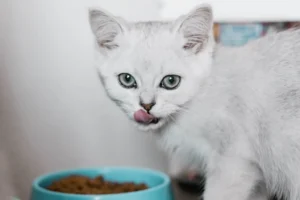Cats and dogs are both popular choices for furry companions, but have you ever wondered why cats tend to be healthier than dogs? Today, we’ll explore the factors that contribute to feline health and why cats often come out on top in this department.
Dietary Differences
Cats and dogs have different dietary needs, which can impact their overall health. Cat food is specifically formulated to meet the unique nutritional requirements of felines. Cats are obligate carnivores, meaning they need a diet rich in animal protein to thrive. On the other hand, dogs are omnivores and can derive nutrients from both plant and animal sources. Cats require higher levels of certain nutrients such as taurine, arachidonic acid, and vitamin A, which are crucial for their health but may not be present in sufficient quantities in dog food. This is why feeding cats dog food or a diet not tailored to their specific needs can lead to nutritional deficiencies and health issues over time.
Additionally, cats have a higher protein requirement compared to dogs. Protein is essential for muscle maintenance and overall well-being in cats. Feeding a cat a diet that is too low in protein can lead to muscle wasting and other health problems. Therefore, it is crucial to provide cats with a diet that is high in quality protein sources to support their unique nutritional needs.
In contrast, dogs can thrive on a more varied diet that includes a mix of protein sources, carbohydrates, and fats. While both cats and dogs require a balanced diet, the specific nutritional requirements differ between the two species. Choosing the right food for your pet based on their individual needs is key to promoting their overall health and well-being.
Exercise Needs
When it comes to exercise needs, dogs generally require more physical activity than cats. Dogs are known for their energetic nature and need for regular exercise to maintain their physical and mental health. Regular walks, playtime, and activities such as agility training are important for keeping dogs fit and happy.
On the other hand, cats are more independent and tend to be less active than dogs. While cats can benefit from regular play sessions and interactive toys, they are often content to explore their surroundings indoors and engage in short bursts of activity throughout the day.
It’s important to provide opportunities for exercise that are suited to your pet’s individual needs. For cats, engaging in interactive play can help keep them mentally stimulated and physically active. For dogs, regular walks and active playtime are essential for maintaining their overall health. Finding a balance that meets your pet’s exercise needs is key to promoting their well-being.
Grooming Habits
Cats are like the clean freaks of the animal kingdom. They spend a significant amount of time grooming themselves – we’re talking hours here! This self-grooming behavior not only helps them stay clean but also plays a vital role in their overall health. When cats lick themselves, they remove dirt, debris, and loose hair from their coats, preventing skin issues and matting. Additionally, this grooming action stimulates blood circulation and distributes natural oils, keeping their skin healthy and coat shiny. By maintaining good hygiene through self-grooming, cats reduce the risk of infections and parasites, giving them a leg up in the health department compared to dogs.
Stress Management
Cats and dogs might not see eye to eye on many things, including stress. Cats are typically more independent and territorial creatures, which means they handle stress differently from their canine counterparts. When faced with a stressful situation, cats often retreat to a quiet, safe space to regroup and recharge. This ability to self-soothe helps them manage stress effectively and maintain overall well-being. On the other hand, dogs are more social animals that rely heavily on human interaction for comfort during stressful times. This fundamental difference in stress management can impact their immunity and health in the long run.
- Multi-tasking Masters: Cats are known for their exceptional ability to multi-task. While grooming, they also manage to keep an eye on their surroundings, ready to pounce at a moment’s notice. This hyper-awareness aids in their overall health by ensuring they can respond quickly to potential threats or changes in their environment. So next time you see your cat grooming, remember they’re not just pampering themselves but also staying on top of their game!
Environmental Adaptability
Cats have a remarkable ability to adapt to different environments, whether it’s a cozy apartment or a spacious house with a garden. This adaptability allows them to thrive in various living situations, which can positively impact their overall health and longevity. Unlike dogs that may struggle with extreme temperatures or changes in living conditions, cats can easily adjust and stay healthy.
Common Health Issues
When it comes to health issues, cats often have the upper paw compared to dogs. Cats are less prone to common problems that affect dogs, such as hip dysplasia, ear infections, and certain types of cancer. Additionally, cats are usually more fastidious in grooming themselves, which helps prevent skin infections and other dermatological issues that can trouble dogs. This lower susceptibility to various health issues can contribute to their overall better health status.
List of Common Health Issues More Prevalent in Dogs:
– Hip Dysplasia: A painful condition in the hip joint that affects many dog breeds.
– Ear Infections: More common in floppy-eared dogs, but can affect any breed.
– Certain Types of Cancer: Dogs are more prone to specific types of cancers than cats.
By being aware of these common health issues that tend to affect dogs more than cats, you can make informed decisions when choosing a pet that aligns with your lifestyle and preferences.
Mental Stimulation
Cats are known for their strong sense of independence, which plays a pivotal role in their mental stimulation. Unlike dogs, cats often seek out activities that challenge their minds, such as puzzle toys or interactive games. This constant mental engagement helps keep their brains active and healthy, reducing the risk of cognitive decline as they age. Providing your feline friend with various enrichment activities can significantly improve their overall mental health and well-being.
Moreover, cats’ natural hunting instincts drive them to engage in activities that mimic their wild behavior, such as stalking, pouncing, and exploring. By allowing them to satisfy these innate behaviors through play, you’re not only keeping them physically active but also mentally stimulated. This mental stimulation is crucial for preventing boredom and potential destructive behaviors in cats, making them less likely to develop stress-related illnesses.
A key aspect of mental stimulation for cats is environmental enrichment. Creating a stimulating environment with scratching posts, climbing structures, and hiding spots can offer your cat endless opportunities for exploration and play. Providing a variety of toys that encourage different types of play, such as chasing, batting, or pouncing, can also keep their minds engaged and active.
In essence, cats’ independent nature combined with their need for mental stimulation makes them inherently healthier in terms of cognitive function. By fostering a mentally stimulating environment for your cat, you can ensure they lead a happy and fulfilling life.
Unique Biological Factors
Cats possess unique biological factors that contribute to their overall health and well-being, ultimately making them healthier animals than dogs in certain aspects. One of these factors is their remarkable ability to conserve energy. Cats are natural-born loungers, capable of sleeping for up to 16 hours a day. This extended rest period allows cats to conserve their energy reserves, which can be beneficial for their overall health.
Another remarkable biological trait of cats is their rapid healing abilities. Cats have a higher metabolism than dogs, which enables them to recover from injuries or illnesses more quickly. Their bodies produce less of the stress hormone cortisol, allowing for faster tissue repair and immune response. This biological advantage means that cats often bounce back from health issues faster than dogs, showcasing their resilience and robustness.
Additionally, cats’ grooming habits play a significant role in their overall health. Cats are meticulous groomers, spending a significant portion of their day cleaning themselves. This self-grooming not only keeps their fur clean and free of parasites but also stimulates blood circulation and promotes relaxation. As a result, their grooming routine contributes to their physical well-being and helps maintain a sleek and healthy coat.
In conclusion, cats’ unique biological factors, such as their energy conservation, rapid healing abilities, and grooming habits, make them inherently healthier animals compared to dogs in various aspects. Understanding and harnessing these biological advantages can help you provide the best care for your feline companion.
Fun Facts About Cats vs. Dogs
Cats are known for their independent nature, but did you know that they are actually better at self-grooming than dogs? This means they are less likely to carry parasites and bacteria on their fur, keeping themselves cleaner and healthier overall. On the other hand, dogs may require regular baths and grooming to stay clean and free of harmful pathogens.
Another interesting fact is that cats have a higher protein requirement in their diet compared to dogs. Their carnivorous nature makes them more adept at processing and utilizing protein for energy and muscle maintenance. This may contribute to their overall health and vitality compared to dogs, who have a more omnivorous diet.
Additionally, cats are meticulous about their litter box habits, making them less likely to soil their living spaces with waste compared to dogs. This can lead to a healthier environment for both the pet and the owner, reducing the risk of exposure to harmful bacteria and parasites.
When it comes to agility and athleticism, cats are also known to be incredibly nimble and flexible creatures. Their natural instinct for hunting and climbing keeps them physically active, promoting better cardiovascular health and maintaining a lean body mass. Dogs, while active and playful, may not possess the same level of agility and flexibility as cats.
In conclusion, these fun facts shed light on why cats are often considered healthier pets than dogs due to their innate grooming habits, dietary requirements, litter box cleanliness, and agility.
The Human-Animal Bond
The bond between humans and their pets is a powerful and unique relationship that provides countless benefits to both parties. Owning a healthy cat or dog can have a positive impact on one’s overall well-being, both physically and mentally.
Studies have shown that interacting with pets, such as petting a cat or playing with a dog, can reduce stress and lower blood pressure. This human-animal bond can promote relaxation and a sense of calm, improving mental health and overall quality of life.
Furthermore, owning a pet, whether a cat or a dog, can increase physical activity levels. Taking a dog for a walk or engaging in interactive play with a cat can help owners stay active and maintain a healthy lifestyle. This regular exercise not only benefits the pet but also enhances the owner’s cardiovascular health and helps manage weight.
Additionally, pets provide companionship and emotional support, especially during challenging times. The unconditional love and loyalty of a cat or a dog can boost morale, reduce feelings of loneliness, and improve social connections. This emotional bond can have a profound impact on mental well-being, promoting happiness and a sense of purpose.
Overall, the human-animal bond between healthy cats or dogs and their owners is a vital component of a fulfilling and enriching life, offering companionship, emotional support, physical activity, and stress relief.
Alex, a passionate animal lover, has experience in training and understanding animal behavior. As a proud pet parent to two dogs and three cats, he founded AnimalReport.net to share insights from animal experts and expand his knowledge of the animal kingdom.




